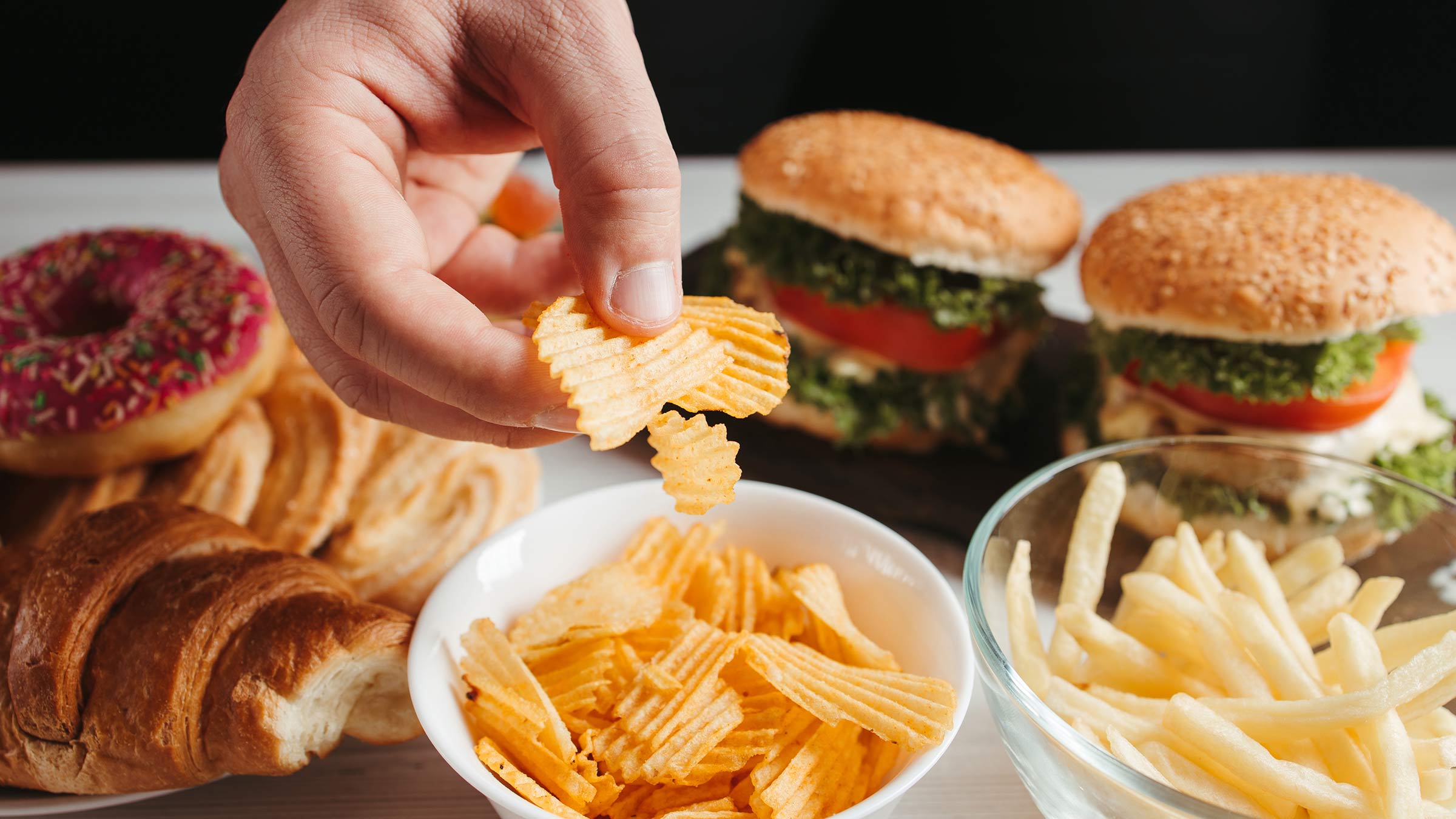
Are you experiencing regret after scarfing down too much of a good thing at a weekend party? Maybe you devoured an entire bag of Cheetos watching Netflix or reached for a box of Thin Mints because you were stressed out about a work deadline.
A food binge happens when we eat past satisfaction and to the point of discomfort or when we eat large amounts of food when we’re not hungry or after finishing a meal.
You might feel sick and maybe a little bit guilty, but it’s not the end of the world. Here are six tips to help get your healthy eating habits back on track.
Hydrate, hydrate, hydrate
Drink lots of water to rehydrate your body after consuming high-salt and high-sugar foods as well as alcohol. Aim for at least two liters — or about 66 ounces.
Keeping your body well-hydrated is always a good practice, especially after a binge, because water aids in digestion and reduces bloating.
Fill up on high-fiber, nutrient-rich foods and lean protein
No foods in particular should be avoided or restricted, because restriction often leads to binging.
However, it’s helpful to focus on slow-digesting foods that keep us full longer, such as vegetables, fruits and other items with high fiber content, as well as lean proteins. These foods can help prevent cravings and restore lost vitamins and minerals.
Try to limit foods that digest quickly, such as those with sugar and refined flour, because they tend to make us feel hungrier.
Meal ideas
For breakfast, have a veggie omelet or high-protein Greek yogurt.
For lunch, good choices include a sandwich, salad or wrap with chicken, turkey or edamame (soybeans), another source of protein.
For dinner, try grilled salmon, chicken or sirloin steak — any “loin” cuts of beef are leaner than others. Add with a baked sweet potato and grilled or sautéed veggies, such as asparagus, broccoli, Brussels sprouts or peppers.
Eat regular meals and snacks, and avoid going long hours without eating
Don’t fast after a binge. Restricting intake can actually lead to another binge.
The key is to avoid waiting until you’re famished to eat, because that’s when we crave the worst foods and overeat. Add small snacks between meals to avoid getting to that point, and always have a protein with your snack to keep you full.
Snack combinations to try
- Veggies or fruit with string cheese
- Apple with peanut butter
- Hummus with veggies
- Whole grain crackers with cheese
- Fruit with nuts
Get active
Make a plan to exercise the rest of the week, keeping in mind that it doesn’t have to be super-intense. Light exercise, like a long walk, still burns calories and, most importantly, aids in digestion and levels out your blood sugar.
Hit the sack
Research studies show that a lack of sleep can increase your appetite because it alters your hormone levels and throws off normal feelings of hunger. You’re also more likely to crave unhealthy, high-carbohydrate and high-fat foods when you’re tired. Getting eight hours of quality sleep will keep your hormones regulated so you can make smart food choices.
Give mindful eating a try
Mindful eating involves using all of your physical and emotional senses to experience and enjoy your food choices. It’s the opposite of the "mindless eating" or distracted eating that often leads to overeating.
The next time you feel a feeding frenzy coming on, tune in to how you’re feeling and why. Before you finish off a bag of chips or go back for seconds or thirds, think about whether you’re really hungry or not. Then, eat slowly, because it takes about 15 minutes for your brain to register when your stomach is full.
When to ask for help
Many people exhibit signs of binge eating occasionally, but when they begin to occur regularly (one to two times or more per week), it may develop into a disorder called binge eating disorder (BED). If you think that you or someone you care for has an eating disorder, it’s better to seek help sooner than later by visiting your primary care doctor or a registered dietitian. Even if you don’t meet the criteria for diagnosis of an eating disorder, seeking help can provide much needed support and prevent further issues.

Healthy eating is within your reach!
Make an appointment with our dietitians or nutritionists.
Schedule an appointment




